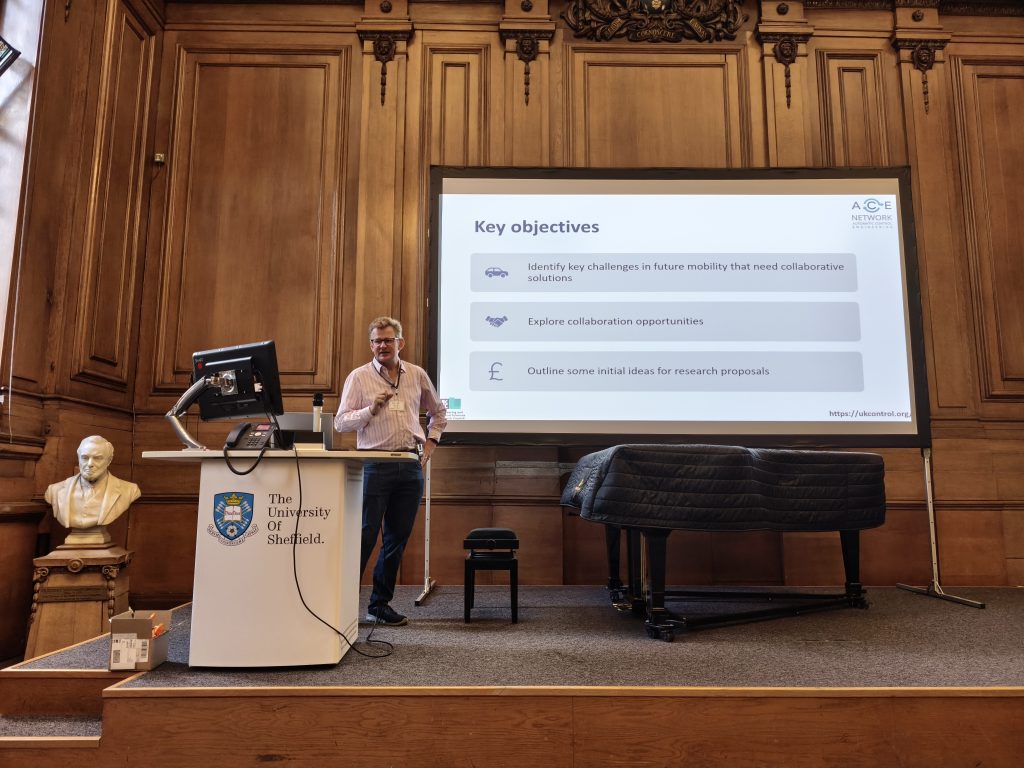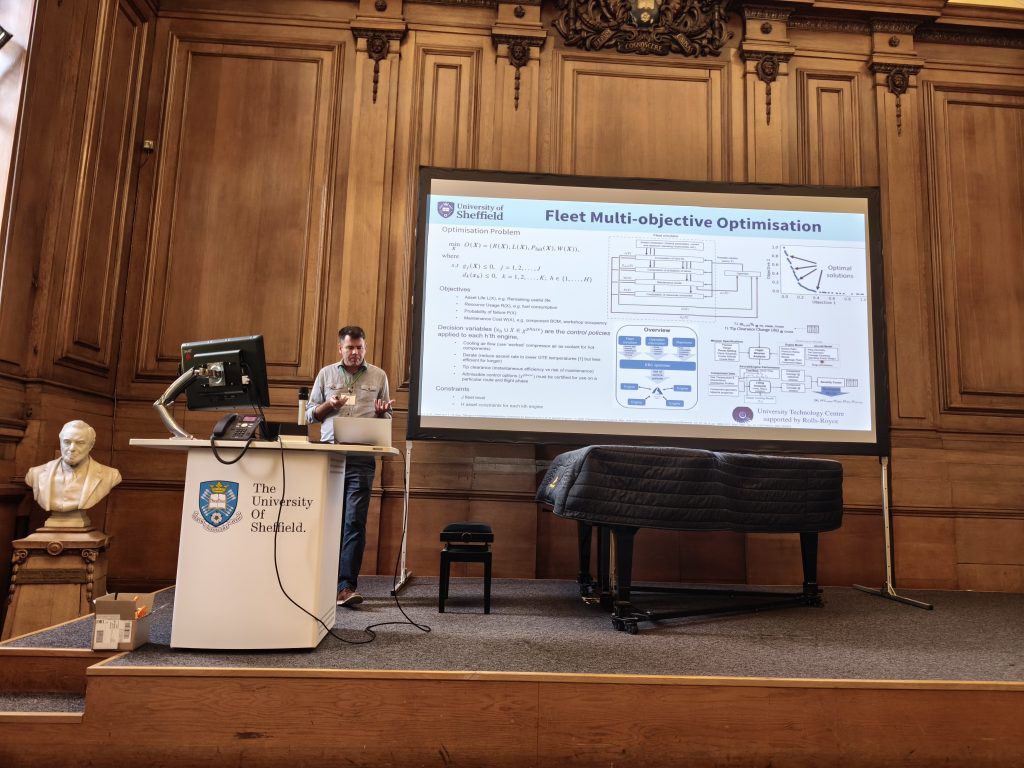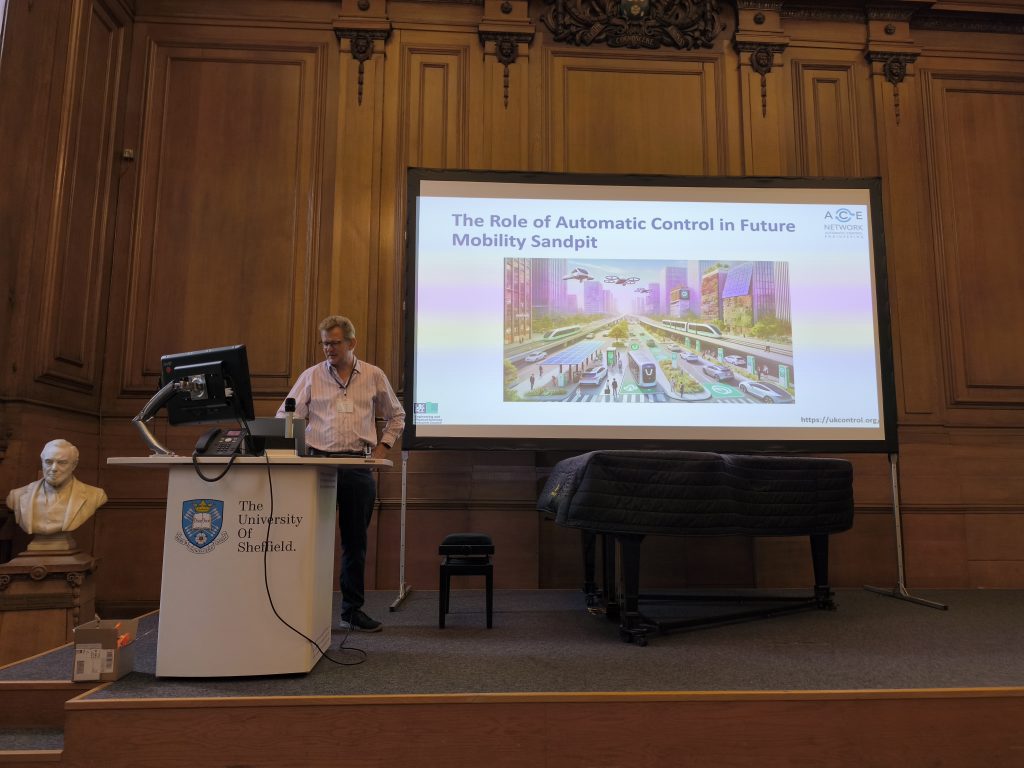Post-Event Report: ACE Future Mobility Sandpit Workshop

Post-Event Report: Future Mobility Sandpit Workshop
Author: Eric Kerrigan (Imperial College London) and Yuanbo Nie (University of Sheffield)
Purpose and Objectives
The ACE Sandpit Workshop, held on 8 September 2025 at the University of Sheffield, focused on exploring the role of automatic control in the rapidly evolving field of future mobility. The event sought to address key challenges within the domain of automatic control engineering and its application in mobility systems.
Building on the success of the previous Industry Workshop in May, this event aimed to delve deeper into the technical roadmap for future mobility. Key challenges explored included intelligent decision-making, autonomy in transportation, and the integration of safety-critical technologies. The intended outcomes included consolidating research priorities, fostering cross-sector collaborations, and laying the foundation for future projects and funding proposals. The workshop provided a unique opportunity for stakeholders to align on common goals and explore the pathway for impactful innovation in the mobility space
Participants and Stakeholders
A total of 17 participants attended the workshop, comprising a mix of senior academics, early career researchers, PhD students, and one representative from industry. The event featured interdisciplinary contributions from various sectors, including aerospace, automotive, control and systems engineering, computer science, and clean energy.
The workshop served as a valuable complement to the industry workshop in May. While participation from the southern part of the country was limited, the workshop successfully brought together experts from the northern regions of England – including Sheffield, Leeds, Loughborough, and Cranfield – helping to foster regional collaboration and strengthen local research networks.

Key Themes and Discussion Highlights
The workshop began with a keynote address by Professor Andy Mills, Deputy Director at Rolls Royce Control, Monitoring, and Systems Engineering UTC. His presentation focused on the future mobility challenges of aerospace and propulsion systems, including the integration of safety layers, the mitigation of cyber threats, and the need for traceable, trusted decision-making in autonomous systems. Notable topics raised included:
- The challenge of operating near efficiency limits while adhering to stringent safety requirements.
- The role of intelligent safety systems to expand operational envelopes.
- Addressing cybersecurity concerns within connectivity for real-time optimization.
- Managing large-scale system complexity and its integration into airspace management.
Following the keynote, participants engaged in breakout sessions to review previously identified challenges and generate new ideas. Based on these discussions, three major topics were selected for further exploration:
- Safe, reliable, and certifiable autonomous systems.
- Energy transition and environmental impact.
- Human-machine interaction, focusing on equitable and inclusive mobility.
These topics were expanded into potential project ideas, which included:
- A framework for transitioning safety standards from simulated environments to real-world scenarios.
- A design for analyzing adversarial attacks on controllers.
- Solutions for charging infrastructure availability and fairness.
- Sustainable energy management for maritime systems.
- Adaptive travel planning tailored to personal agendas.
During the lunch break, participants voted on the most promising project topics, resulting in the identification of three key topics to be developed further. The afternoon breakout sessions led to the creation of two draft project proposals, which were refined through feedback and collaborative input.

Outputs and Follow-Up Actions
The workshop resulted in two draft proposals that will drive future research efforts. The first proposal focuses on creating a framework for the regulatory alignment of autonomous systems, ensuring that safety and operational standards are consistently met. The second proposal targets the dismantling and reassembling of batteries, addressing sustainability concerns in the mobility sector.
These proposals will be developed further by designated project teams, with subsequent meetings scheduled to refine the ideas and pursue funding opportunities. Additionally, the Future Mobility GCRC will integrate the prioritized challenges identified during the workshop into the broader roadmap for future mobility research, guiding the ACE Network’s strategic direction.
Strategic Relevance and Broader Impact
This sandpit workshop directly supports the ACE Network’s mission by fostering collaborations to tackle key challenges in the field of automatic control. The workshop’s outcomes align closely with EPSRC priorities, particularly in advancing the UK’s industrial capabilities in autonomous systems, sustainability, and energy transition. By addressing critical global challenges, such as energy management and the safe implementation of new technologies, the workshop has positioned the ACE Network to play a pivotal role in shaping the future of mobility.
